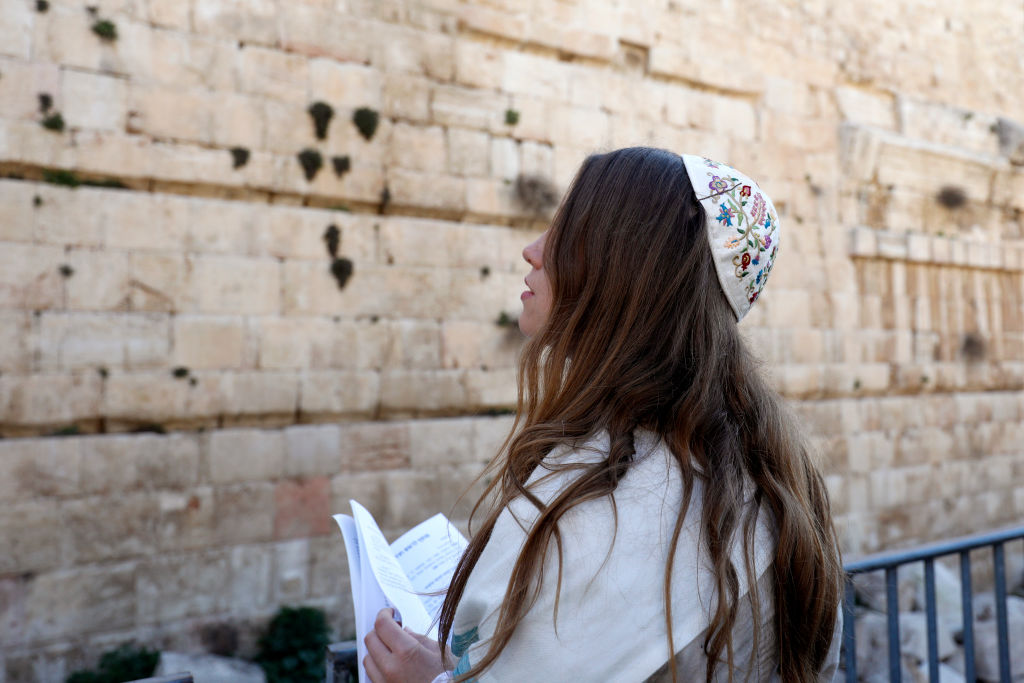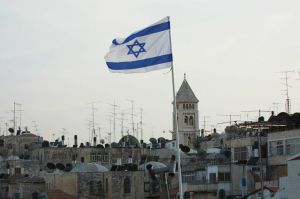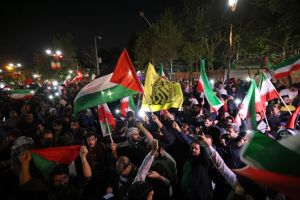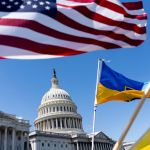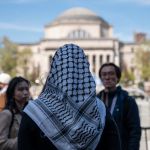It isn’t easy getting around the Gulf these days. The blockade on Qatar means no direct flights from most of its neighbors, so I spend hours of layover looking at the great mountain ranges of Muscat from the antiseptic tedium of my transfer terminal. My main reason for coming to the region is to speak in Doha for the newly revived ‘Doha Debates’. After my speech, a more than usually aggressive interviewer demands to know why Britain and other European countries have not taken in more Syrian migrants. The Emir’s sister and others are in the audience and I cannot pass up the opportunity to poke my hosts in the eye. I ask how many Syrians have been made citizens by Qatar. There is a terrible silence, followed by some giggling and a small amount of applause which is afterwards said to have come from the foreigners in the audience.
By way of comparison, with me on a panel onstage we have a smart young Syrian girl from Aleppo who is currently studying in Newcastle after being given asylum, with her family, by Britain. One of the other panelists came to the UK with her family after the revolution in Iran in 1979. I am later interviewed by a bright young British journalist who arrived in the 1990s from Afghanistan. Yet it is Britain and the West that my Qatari interviewer would like to portray as bigoted, isolationist and closed-minded.
I had detoured first to the United Arab Emirates to visit the stunning new Louvre museum there. Before going I had slightly wondered if the French had rinsed the locals for cash and given them some bric-à-brac from the basement in Paris. No such thing. The Louvre Abu Dhabi has a world-class collection in one of the most spectacular settings imaginable. The antiquities so beautifully preserved here are all the more moving for reminding us of what happened to other monuments of civilization not many miles away. Afterwards a friend recommends that I go to visit the newish Sheikh Zayed Grand Mosque. My picture is taken in front of it and I post this on Twitter. As is usually the case with social media, people seize on unexpected points. On this occasion they seem fascinated by my layers of clothing. True, I am wearing a shirt and a jumper with a jacket on top. But March isn’t that warm in the Gulf and the ‘Mad dogs and Englishmen’ jokes are all unwarranted.
A great pleasure to visit the Sheikh Zayed Grand Mosque in Abu Dhabi. pic.twitter.com/mM3ahdYB09
— Douglas Murray (@DouglasKMurray) February 25, 2019
I transfer in Cyprus to go on to Tel Aviv, wishing there was one country on this trip I could go to from another. Whenever things seem as though they may become straightforward in the Middle East, such as over warming relations with the Gulf states, you get a reminder of how complicated everything always will be. In Jerusalem I make my usual visit to the Western Wall. Just beyond the remaining wall of the Temple is the Dome of the Rock, where Abraham intended to sacrifice Isaac, and from where Muslims believe Mohammed ascended on the night journey. A lot of ascending happened around this spot — in Christianity too. People always think that wherever they are is the center of the world, but I always feel that Jerusalem actually is.
I return to Britain via Berlin to debate Radek Sikorski on the subject of nationalism. The former Polish foreign minister has to try to explain why nationalism is ‘a delusion’. It’s an interesting claim, because ‘nationalism’ is a shape-shifter term, sometimes seen as a liberal project (as in the 19th century), sometimes not (as in the 21st). But it is contingent on place too. Clearly some countries are permitted to be nationalist today and others are not. Yet the reason lots of Europeans are against nationalism isn’t that nobody should have it, but because we’re not sure if we should. And that, as I point out to an audience which finds the comment sweet-sour, is because we’re still not sure whether the Germans can be trusted with it. Inevitably Brexit comes up in the debate, and — despite my best efforts — at dinner afterwards. Radek, like many others, is still spitting about it. But I can’t really engage. I have traveled a great deal in recent years in order to avoid discussing Brexit. Partly because we have to have a country after this, and the way people have been talking I’d be amazed if we do. I watch Westminster through my fingers. One MP, who shall remain nameless, routinely gets up in the House of Commons, decries the British voting public as morons led astray by racists, and then asks why we can’t be more united.
I return to Britain just in time to find some online warriors trying to pin the New Zealand massacre on everyone who has ever spoken out against Islamic extremism or mass immigration, including me. Some Islamists decide that the correct response is to kill Sajid Javid and me, among others. Once again, things were actually cooler in the Middle East.
This article was originally published in The Spectator magazine.
